
Access campaigner Kate Ashbrook, General Secretary of the Open Spaces Society, looks back at a pre-war attempt to enshrine public access in law, and concludes that for all its faults the modern version is far better. The following has been adapted from articles that first appeared on her blog.
Arthur Creech Jones, who died 50 years ago today on 23 October 1964, is remembered in access campaigning circles as the MP who got the Access to Mountains Bill 1939 on the statute book. Unfortunately by the time parliament had finished with it, the bill was very different from the one Creech Jones introduced, to his great disappointment and the fury of ramblers.
Creech Jones was Labour MP for Shipley (1935-50) and Wakefield (1954-64). He is described in the Oxford Dictionary of National Biography as ‘unimpressive in appearance’, ‘not a brilliant or witty speaker; but he was one whom the House of Commons greatly respected for his knowledge, integrity and sincerity’.
In the Atlee administration formed after the Second World War he became parliamentary under-secretary of state at the Colonial Office and a year later colonial secretary, where he was pioneer of the ‘wind of change’ which ultimately freed so many British colonies.
In 1938 as an opposition MP he was no doubt delighted to get the chance to introduce the Access to Mountains Bill, for which the Commons, Open Spaces and Footpaths Preservation Society (now the Open Spaces Society) and the Ramblers’ Association (RA) had long fought. It was largely the same bill as had been introduced by James Bryce 50 years earlier. Unfortunately the landowners soon got at it, and Creech Jones was weak about defending his bill. He ‘expressed willingness to allow almost unlimited modification to the bill in committee’ (Hansard, 2 December 1938).
"The regime was unworkable and very nasty. Fortunately it never came into effect"
The bill was butchered as it went through parliament, the Commons Society secretary Lawrence Chubb conniving with landowners behind the backs of the RA, with the result that a bill that was intended to allow freedom to roam on open county became something far more restrictive.
The bill which became law on 1 Jan 1940 did not give a right of access, it merely prevented the owner and others from keeping walkers off the land to which the act applied. The access was given by order, made by the minister, on the application of the owner, local authority or ‘any organisation deemed by the minister sufficiently representative of the persons likely to be benefited by the application of this act to the land’. However, this access was only available during daylight hours; at night the ordinary law of trespass applied. There was a list of restrictions (similar to those in the 1949 act and the Countryside and Rights of Way Act 2000), breach of which were criminal offences.
The statutory rules and orders which followed made it even worse. Anyone wanting access had to apply for an order on a prescribed form and pay £10. He also had to provide and pay for maps and advertisements. If there were objections, the applicant might have to pay for a public inquiry. If an order was made, the applicant had to erect notices and signs and maintain them. And if the ministry decided to close land, because of fire danger for instance, the applicant had to post notices. All this placed a wholly unreasonable burden on those seeking access, and the applicant might be an organisation such as the RA with very limited funds.
The regime was unworkable and very nasty. Fortunately it never came into effect.
The Countryside and Rights of Way Act 2000, with its imperfections and limited application, is undoubtedly far better than the Access to Mountains Act’s pernicious provisions.
During the bill’s passage Creech Jones seemed to remain upbeat. He spoke about the bill at the Commons Society’s AGM on 10 May 1939. According to the report in the society’s Journal of July 1939, he ‘testified to the goodwill and spirit of accommodation which had been shown by all those with whom they had had to negotiate. He wished to say emphatically that the landowners in these negotiations had attempted to meet the promoters’ point of view with a genuine regard to the public interest’. He considered the bill ‘marked a very considerable social advance.’ These sentiments also appeared in the Manchester Guardian and attracted angry responses from ramblers. Even so, the RA elected Creech Jones as a vice-president in 1939.
He served on the Commons Society’s committee from 1939 to 1954. On his death in 1964 he left his estate to his widow Vi, and on her death a decade later the estate was divided between the Commons Society and the William Morris Society ‘expressing the hope that the societies will as far as possible use the same in some way that would preserve the name of my late husband Arthur Creech Jones’. The Commons Society made a number of useful grants to local societies with the fund.
According to his colleague, Carol Johnson MP, Creech Jones was ‘keenly interested in the protection of the countryside and the opening up of facilities for walking and climbing. For many years he led walking parties in the Alps (France, Switzerland and Austria) and was one of those responsible for creating the Workers’ Travel Association Mountain Group which opened opportunities for serious climbing in the Alps for many young people.’
- The Open Spaces Society is Britain's oldest national conservation body. They have campaigned to protect open spaces, commons, greens and public paths in England and Wales since 1865. For more info see their website here.

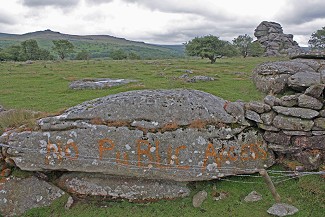
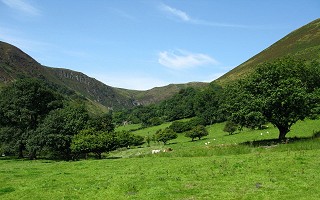

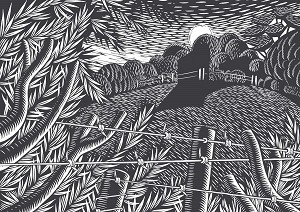
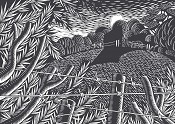
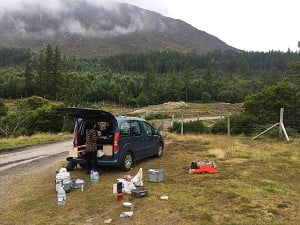
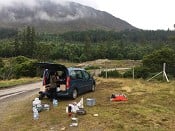
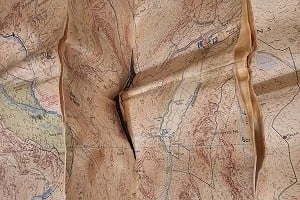
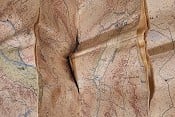



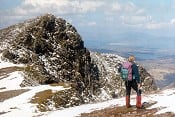
Comments